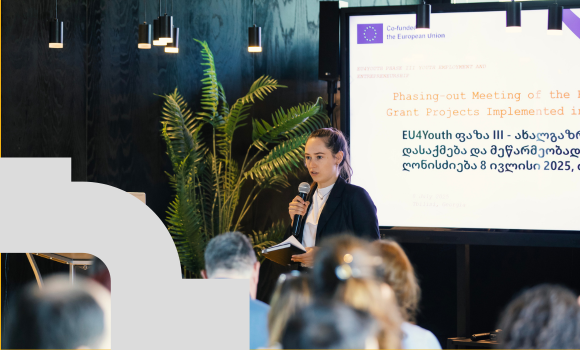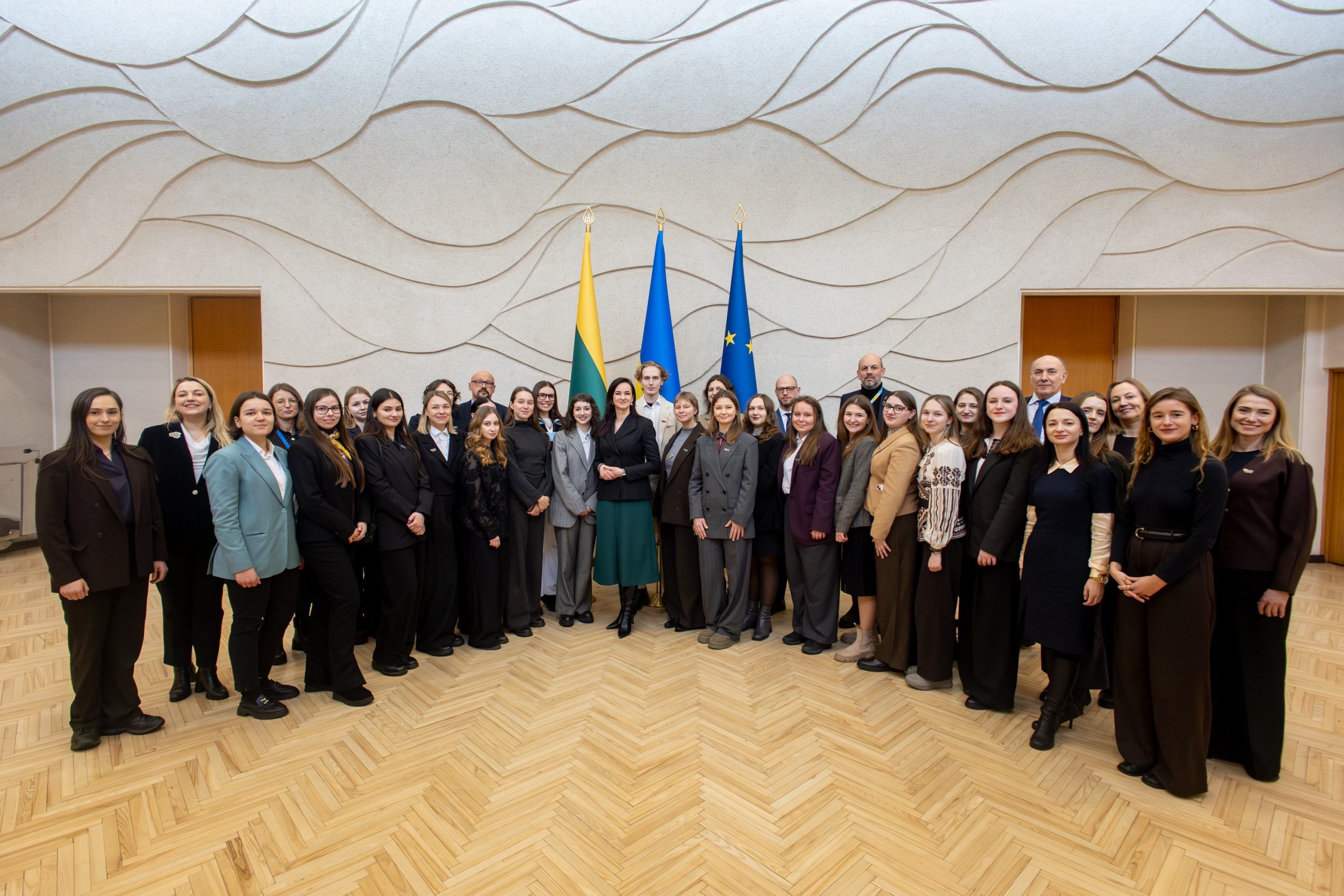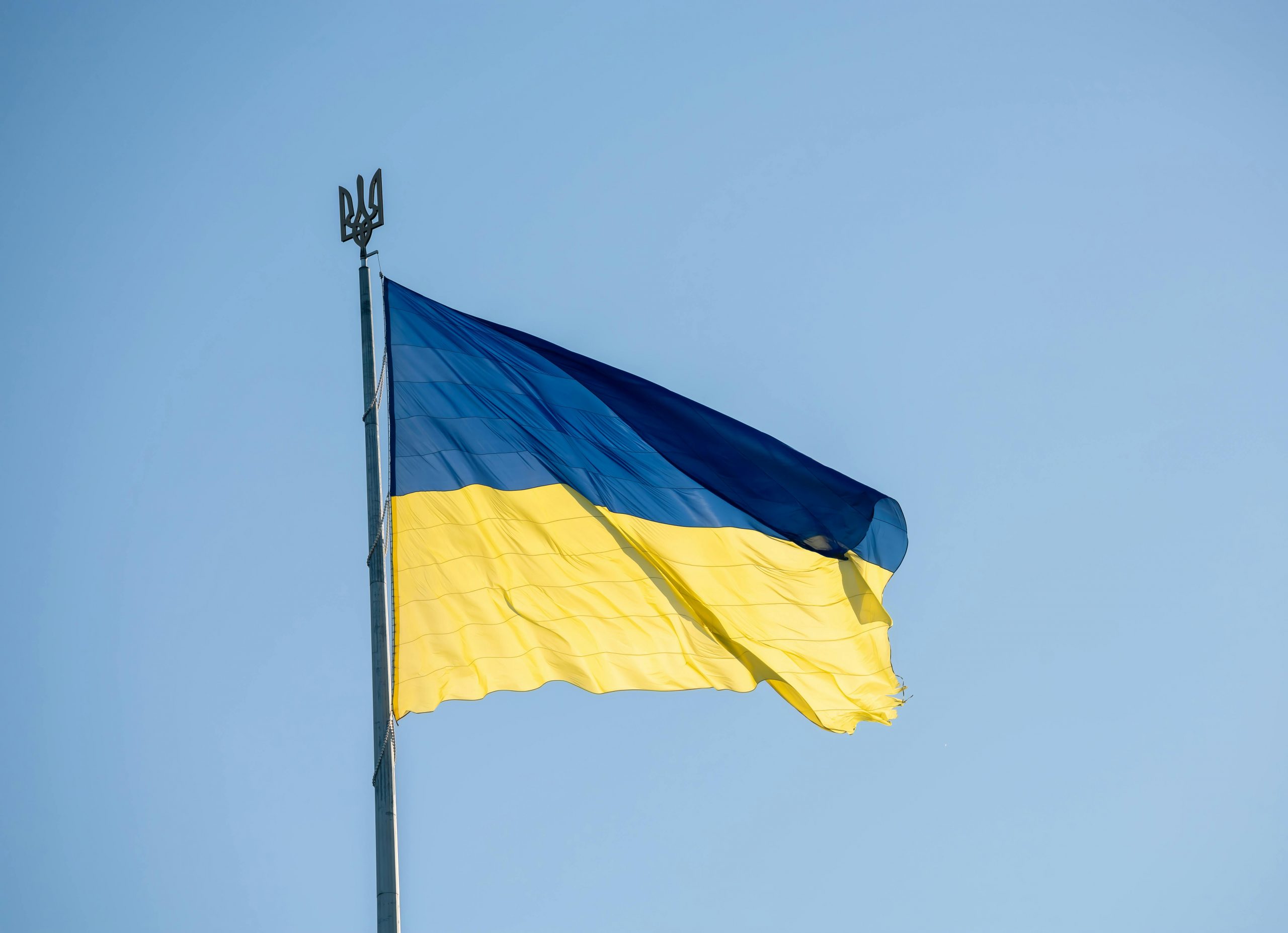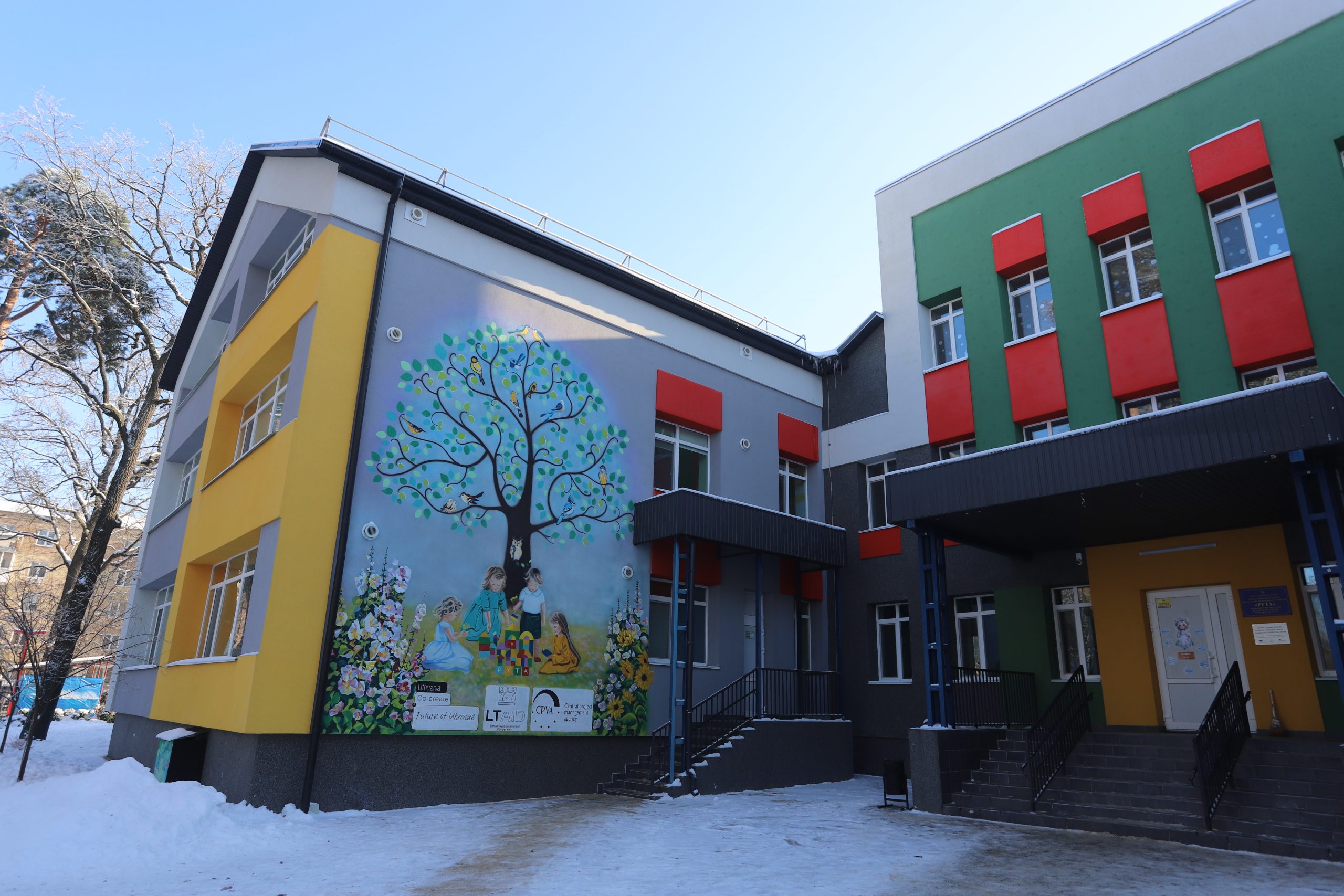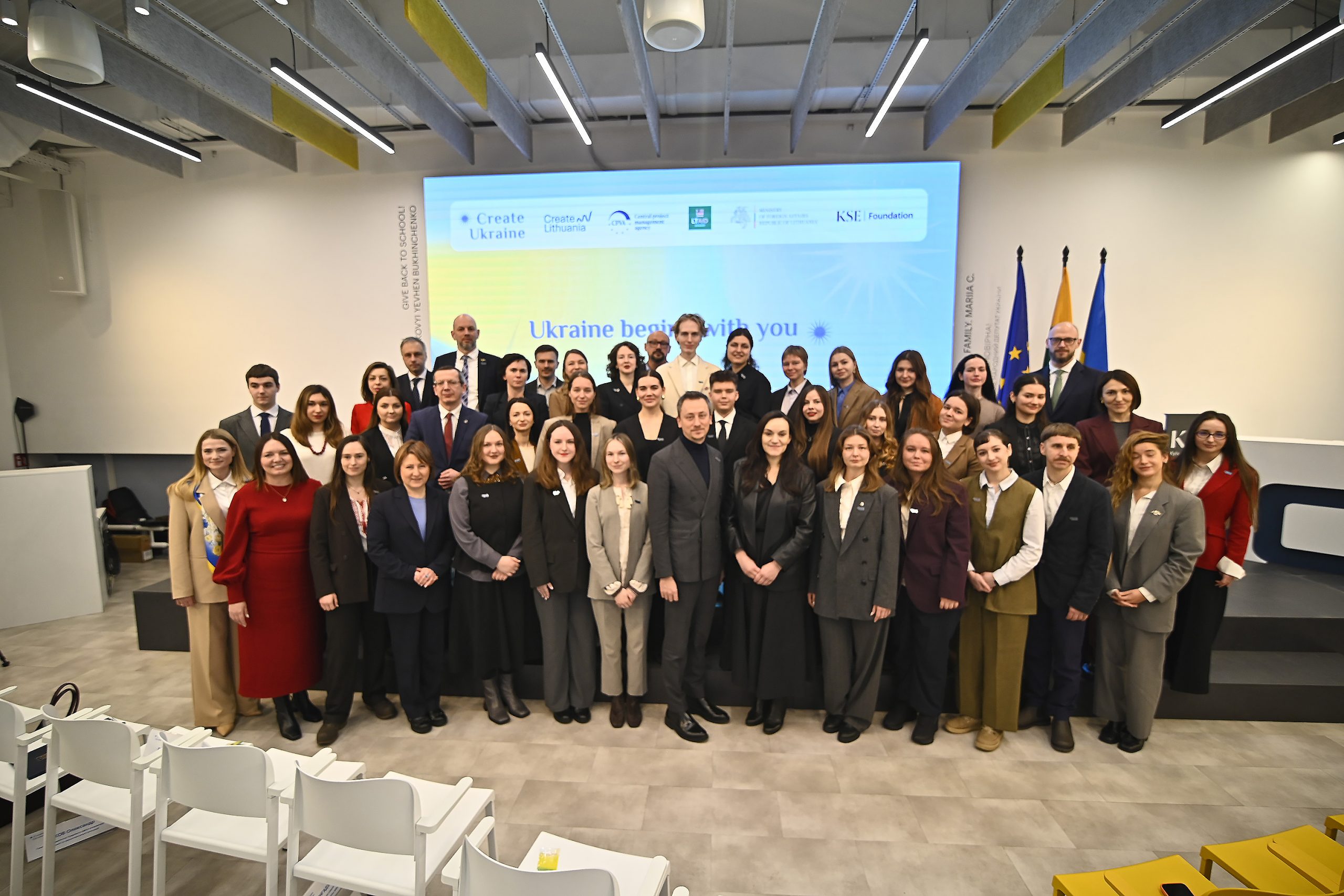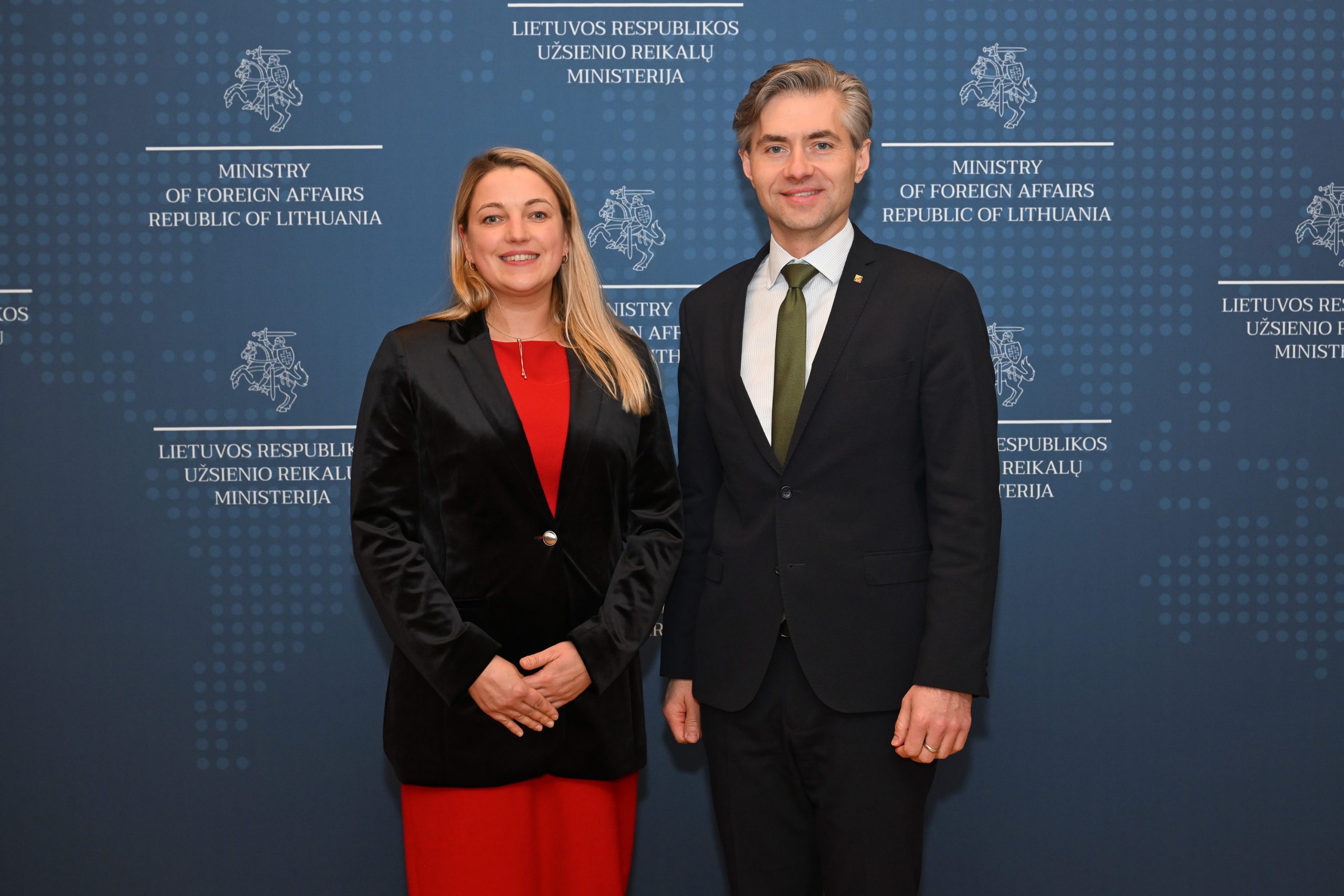In several Eastern Partnership countries—including Ukraine, Moldova, Armenia, and others—many young people reside in remote areas with limited access to quality education, training, and employment opportunities. A significant portion of these youth are not engaged in education, employment, or training (NEETs) and are often overlooked by formal support systems. Lithuania, through the European Union’s “EU4Youth” programme, plays a pivotal role in addressing these challenges.
“Many young people don’t know where to begin. They lack essential skills, motivation, and confidence. Some don’t even have access to a computer,” explains Dalia Krapavickaitė, senior project manager at the Central Project Management Agency (CPVA) and coordinator of the “EU4Youth” programme.
To mark the 10th anniversary of the Sustainable Development Agenda, the Central Project Management Agency (CPVA) is sharing stories of change to highlight how Lithuanian knowledge and expertise contribute to positive change around the world—and to remind that lasting global change is only possible when we work together.
Since 2021, “EU4Youth” has operated in six Eastern Partnership countries—Ukraine, Moldova, Armenia, Azerbaijan, Georgia, and Belarus—targeting NEET youth who have lost contact with support services. According to D. Krapavickaitė, Lithuanian experts are highly valued for offering not only theoretical knowledge but also practical solutions.
“Lithuania and these countries share similar historical experiences. Most went through the Soviet era, so we understand many of the problems they face. This helps us work better together,” Krapavickaitė notes.
The programme primarily delivers training in areas ranging from digital skills development to social entrepreneurship, while also fostering institutional cooperation, creating new methodologies, and strengthening public systems to align with European standards.
Tailored approaches and varied progress
Recognizing the unique context of each country, Lithuanian experts collaborate closely with local youth organizations, ministries, and employment agencies to tailor interventions. According to the CPVA representative, currently, Ukraine is the most advanced.
“The ongoing war has accelerated Ukraine’s integration with the EU. Institutions like the Ministry of Digital Transformation operate with remarkable efficiency, adopting private sector practices such as performance indicators, internal management systems, and agile decision-making,” says Krapavickaitė.
Together with this ministry, an electronic tool was developed that helps young people check their business skills and learn how to improve.
Ukraine is also preparing to implement the EU Youth Guarantee scheme, which aims to help every young person find a job or continue studying within four months after finishing school or losing a job.
Meanwhile, Moldova and Armenia are still building up their employment services, creating databases, and digitizing their services. Within the Programme joint events allow them to share knowledge and support each other.
Empowering students and young entrepreneurs
One of the most important initiatives of the Programme is scholarships for studies at the College of Europe in Natolin (Poland), enabling young people from Eastern Partnership countries to deepen their understanding of the European Union’s structure, values, and policies.
“Most graduates go back home and work on international projects, in EU delegations, or government roles. In a way, they naturally become young ambassadors of European values and ways of thinking,” says D. Krapavickaitė.
The Programme also devotes significant attention to supporting local civil society organisations by providing EU4Youth grants to regional projects, which then award sub-grants to grassroots initiatives.
One such example is a Moldovan social enterprise that produces safe wooden toys for kids, using natural paints. With the help of a sub-grant, the business was able to expand its operations.
“The entrepreneur identified the health risks posed by plastic toys and aimed to provide safer alternatives. The grant was instrumental in scaling the business,” Krapavickaitė shares.
Ukraine’s recontruction — who will rebuild it?
According to the CPVA representative, the war in Ukraine has significantly affected the Programme’s operations, with many activities shifting online or to neighboring countries like Moldova. Funding for youth centers diminished as resources were redirected to support the war effort.
In response, “EU4Youth” allocated additional grants to Ukrainian organizations assisting vulnerable populations, including veterans, internally displaced persons, and individuals with disabilities.
Ukrainian authorities are developing a national employment strategy with expert support from EU4Youth, focusing heavily on reintegrating veterans into civilian life.
“Many young men went to the front without professional skills. Returning, they have specific (combat) skills but don’t know how to adapt them in the labor market or how to develop their career. Moreover, they lack not only work skills but also psychological support,” explains D. Krapavickaitė.
Massive reconstruction work awaits Ukraine. It is estimated that Ukraine will require over 1.5 million specialists across sectors such as construction, mining, transport, energy, manufacturing, and agriculture. However, according to the CPVA representative, the reality is that, for example, only 3 percent of youth are interested in construction. Most prefer IT, beauty, design, or healthcare.
“It is crucial to shift perceptions. Construction workers today are as important as programmers. We must help young people find themselves in the process of Ukraine’s rebuilding. They should be seen as part of the solution, not the problem,” says D. Krapavickaitė.
She adds: “For every soldier on the front, there should be several people behind the lines — supplying, working, creating value, paying taxes — all helping the country’s economic stability, which is a necessary condition for the resilience of the entire state.”
Building strong partnerships
The programme also values emotional support and connections between countries.
“When protests broke out in Georgia, representatives of local grant-implementing organisations and even young people benefiting from the projects took part. The tense political situation risked affecting their ability to focus on project activities and weighed on them emotionally. Support from international partners — both practical and emotional — helped them keep the projects going, even in the midst of a political crisis,” she recalls.
A similar feeling was during joint visits to Belgium and Germany, where young people from Ukraine, Georgia, and Belarus met.
“Behind the scenes, they spoke openly about what they were experiencing in the current political climate, and real human connections began to form. Although they are separated by very complex circumstances, perhaps these are the first steps toward a lasting peace, should circumstances change in the future,” says the CPVA representative.
The “EU4Youth” programme has been running since 2021 and will continue until 2026. The programme is implemented by the Central Project Management Agency (CPVA), funded with 14.4 million euros from the European Union budget, with Lithuania contributing 720 thousand euros.
